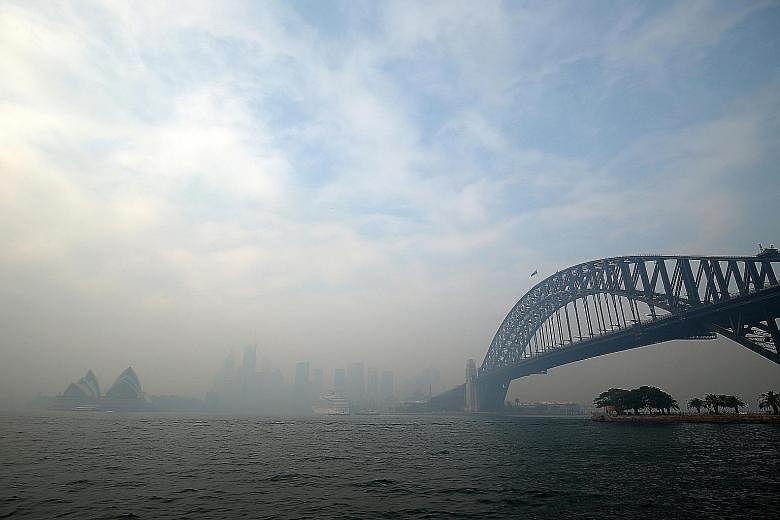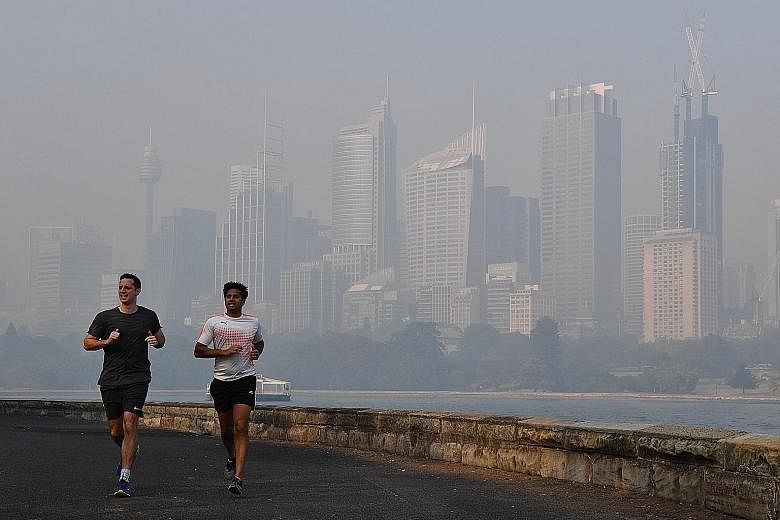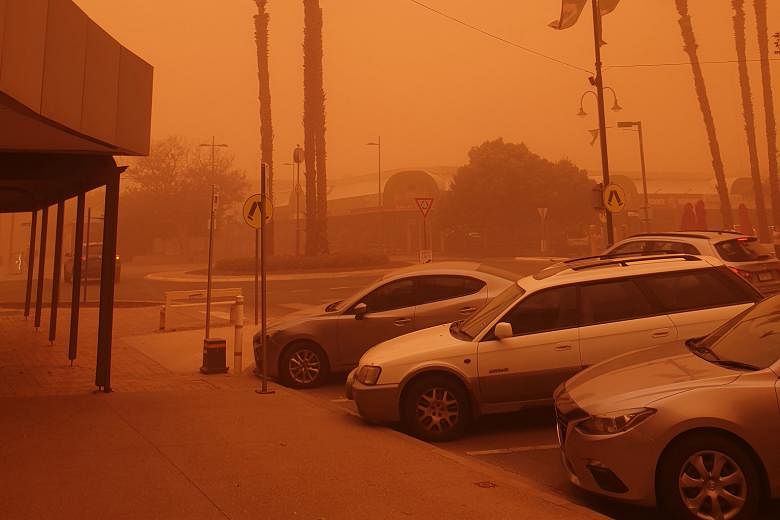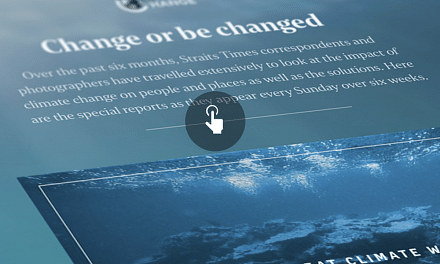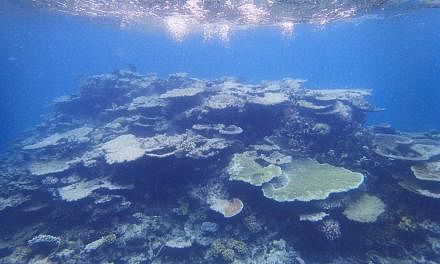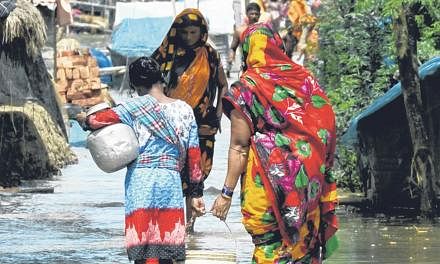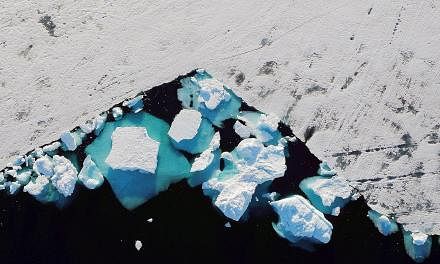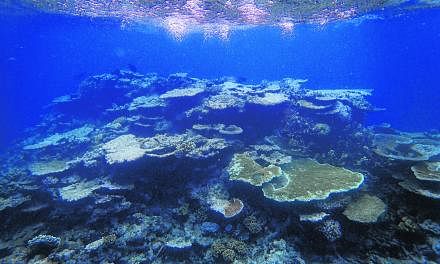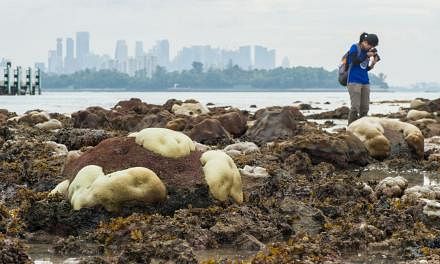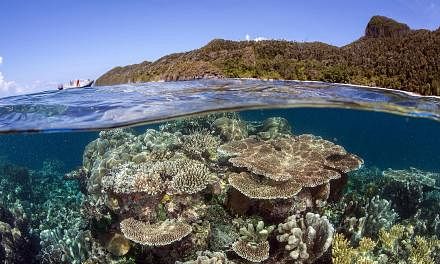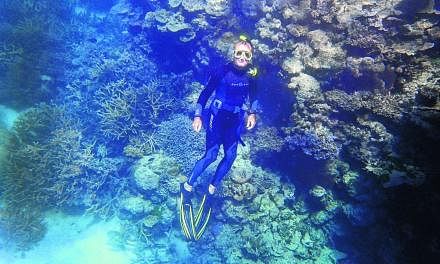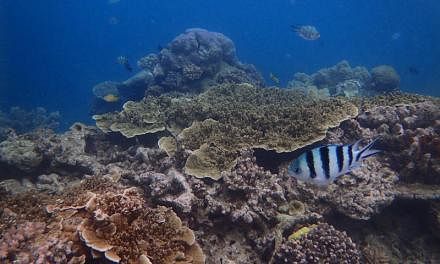SYDNEY • Australia's Prime Minister yesterday denied his climate policies have caused unprecedented bush fires ravaging the country and insisted his government is doing enough to tackle global warming.
As dozens of new blazes scorched the countryside and the country's largest city was cloaked in hazardous smoke, conservative leader Scott Morrison defended his climate record, saying Australia is "doing our bit".
His comments came after weeks spent refusing to speak about the link between climate change and the deadly fires described by the emergency services as unprecedented in the number and scale for the early bush fire season.
As more people in the south-east of the country were told to evacuate their homes and schoolchildren in Sydney were again forced to play indoors, Mr Morrison dismissed mounting calls for action.
"The suggestion that any way, shape or form that Australia - accounting for 1.3 per cent of the world's emissions... are impacting directly on specific fire events, whether it is here or anywhere else in the world, that doesn't bear up to credible scientific evidence," he told ABC radio.
Drought, unseasonably hot, dry and windy conditions have fuelled the unprecedented blazes. Scientists believe many of those factors are made worse by rising global temperatures.
Yesterday, bush fires burned across every region of Australia, with residents in Victoria warned to leave the high-risk areas and officials in New South Wales reporting that more than 600 homes have been destroyed in recent weeks.
Mr Morrison is facing calls to cut greenhouse gas emissions and rapidly transition to renewable energy - a sensitive debate in light of his country's lucrative mining industry.
Australia has committed to cut emissions to 26 per cent to 28 per cent below 2005 levels by 2030, under the 2016 Paris climate accord, but emissions have risen every year since then.
The devastating fires along the country's east coast have claimed six lives since mid-October.
Now the fire danger has moved into states further south, with more than 60 fires breaking out in Victoria yesterday - including five at "emergency" level - after a so-called Code Red fire danger was declared for the first time in a decade.
Victoria Emergency Services Minister Lisa Neville said firefighters were battling "some of the worst conditions that you'd expect to see, often in February or March, and we're seeing them in November".
The Bureau of Meteorology said "large areas" of central and eastern Victoria broke maximum temperature records for November - including in Melbourne where the mercury reached 40.9 deg C - while a dramatic dust storm swept through the town of Mildura, turning the sky a vivid orange.
Country Fire Authority chief Steve Warrington earlier told people living in high-risk rural areas to leave for the safety of cities.
The fire danger was also elevated to "extreme" in the island state of Tasmania off the mainland's south-eastern coast, one of several areas where a total fire ban was declared.
For the second time in three days, smoke from bush fires blanketed Sydney, Australia's biggest city, sending air quality plummeting to hazardous levels.
In South Australia, the state capital Adelaide was also shrouded in smoke and residents were being told to stay indoors.
More than 110 fires are still burning in worst-hit New South Wales and neighbouring Queensland, while in South Australia more than 40 fires broke out during catastrophic fire conditions on Wednesday.
